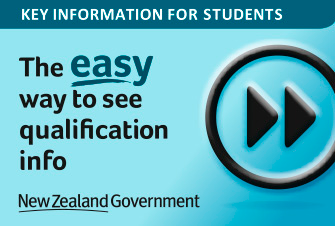Programme overview
Robotics and automation have seen widespread applications in many industries, including healthcare, agriculture and manufacturing. The Postgraduate Diploma in Robotics and Automation aims to supplement your educational or work backgrounds with the specific skills and knowledge necessary to further your career in these fields.
Many of our teaching staff are well-recognised experts who are a part of the University’s Centre for Automation and Robotic Engineering Science. They boast collaborations with industry and researchers at a global scale. This ensures that our courses are kept up-to-date with recent real-world applications, as well as containing direct insights into the emerging technologies available here in New Zealand.
While the PGDipRobotEng is a taught programme directed largely at those who want to put their skills to practice in industry, it can also be treated as the foundation for further academic study in its masters equivalent, the Master of Robotics and Automation Engineering.
Programme structure
The PGDipRobotEng is a 120-taught programme with courses designed to give you a broad base of technical knowledge in the field. You’ll have to complete the following courses.
Compulsory courses
- COMPSYS 726 Robotics and Intelligent Systems (Semester One)
- COMPSYS 730 Robotics and Society (Semester Two)
At least one of the following:
- ENGGEN 730 Management Skills for Project Professionals
- ENGGEN 731 Agile and Lean Project Management (Semester One)
- ENGGEN 732 Systems Thinking and Project Business Case (Semester One)
Five courses listed in the Electives tab.
You'll also need to meet other requirements, including time limits and total points limits. See Postgraduate enrolment.
2025 entry requirements
My highest qualification is from:
Programme requirements
Minimum programme requirements
Minimum requirements listed here are the likely grades required and do not guarantee entry. We assess each application individually and applicants may require a higher grade to be offered a place.
-
Study optionTaught 120 pointsGrade requiredGPA Grade Point Average 2.5
Further programme requirements
Taught 120 points
You must have completed either a Bachelor of Engineering or Bachelor of Engineering (Honours) with a GPA of at least 2.5 in 60 points above Stage III.
Bachelor's degrees in relevant fields such as applied science and technology may be considered with a GPA of 3.0 in at least 60 points above Stage II.
Note: Whether a degree is considered relevant will depend on the courses passed. Degrees or subjects in applied science, bioengineering, computer science, data science, electrical engineering, electronic engineering, information technology, mechatronics, science, or technology, may be considered relevant.
Programme requirements
Minimum programme requirements
Minimum requirements listed here are the likely grades required and do not guarantee entry. We assess each application individually and applicants may require a higher grade to be offered a place.
-
Study optionTaught 120 pointsGrade requiredGPE Grade Point Equivalent 3.0
Completed the requirements for a relevant Bachelors degree with a Grade Point Equivalent of 3.0.
-
QualificationIELTS Academic International English Language Testing SystemScore required6.5
No bands below 6.0.
Further programme requirements
Taught 120 points
Note: Whether a degree is considered relevant will depend on the courses passed. Degrees or subjects in applied science, bioengineering, computer science, data science, electrical engineering, electronic engineering, information technology, mechatronics, science, or technology, may be considered relevant.
How much does a Postgraduate Diploma in Robotics and Automation Engineering cost per year?
2025 fees
- Domestic students
- NZ$12,127.20*
- International students
- NZ$52,842*
Fees are set in advance of each calendar year and will be updated on this website. Fees are inclusive of 15% GST, but do not include the Student Services Fee, course books, travel and health insurance, or living costs. Amounts shown are indicative only. In addition to the tuition fees, there is a Student Services Fee of $9.24 per point, estimated at $1,108.80 for full-time study (120 points). Fees will be confirmed upon completion of enrolment into courses.
*Please note: amounts shown are indicative and estimates only.
Find out about financial support information
Scholarships and awards
Find out about the scholarships you may be eligible for.
Student loans and allowances
Are you a New Zealand citizen or resident? You could be eligible for a student loan or allowance.
Cost of living
Get an idea of how much accommodation and general living in Auckland will cost.
Key dates
Please note: We will consider late applications if places are still available. International students should start the application process as early as possible to allow sufficient time to apply for a visa.
Application closing dates
- Semester One 2025
- 8 December 2024
- Semester Two 2025
- 4 July 2025
Start dates
Here are the start dates for the programme.
| Semester One | Starts – 3 March |
|---|---|
| Ends – 30 June | |
| Semester Two | Starts – 21 July |
| Ends – 17 November |
| Semester One | Starts – 2 March |
|---|---|
| Ends – 29 June | |
| Semester Two | Starts – 20 July |
| Ends – 16 November |
Other important dates
See important dates for the academic year, including orientation, enrolment, study breaks, exams, and graduation.
Semester One
- ENGGEN 730 Management Skills for Project Professionals
- COMPSCI 765 Interactive Cognitive Systems
- COMPSCI 767 Intelligent Agents
- COMPSCI 773 Intelligent Vision Systems
- ENGGEN 769 Research Methods for Engineers
- ENGSCI 760 Algorithms for Optimisation
Semester Two
- COMPSCI 760 Data mining and Machine Learning
- COMPSCI 761 Advanced Topics in Artificial Intelligence
- COMPSYS 731 Human-Robot Interaction
- COMPSYS 732 Mobile Autonomous Robotics
- ELECTENG 704 Advanced Control Systems
- MECHENG 724 Multivariable Control Systems
- MECHENG 736 Biomechatronic Systems
- SOFTENG 762 Robotics Process Automation
Where could this programme take you?
There is a rising demand for expertise in automation and robotics to align with established firms increasingly evolving to adopt 'smart' technologies. More employees now recognise the need for skilled people who understand the best use of technologies and their added value, so career possibilities are also growing in many industries.
Jobs related to this programme
- Automation engineer
- Automation design engineer
- Automation systems engineer
- Mechatronics Engineer
- Robotics engineer
- Robotic Process Automation developer
- Robotics software engineer
Student career planning service
Once you become a student at the University, you can get help with planning and developing your career from Career Development and Employability Services.
Do you need help?
Can’t find the answer in AskAuckland?
Need to speak to someone?
You can phone us directly.
- Auckland
- 923 5025
- Outside Auckland
- 0800 61 62 63
- International
- +64 9 373 7513


